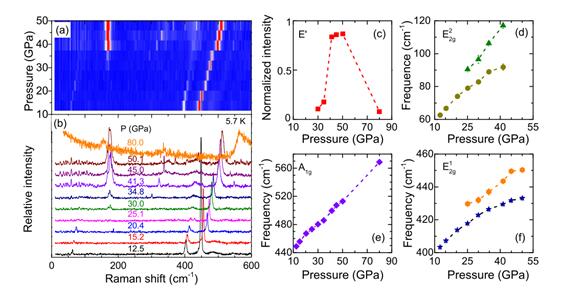MoS2, a kind of synthetic chemical, is observed previously to present superconductivity at high pressures (namely surpressing 90 GPa).
However, what generates the superconductivity and how it is caused remain a mystery.
Chinese researchers took a closer examination on it and they pushed the boundary further to understand it.
Actually, superconductivity always emerges with competing order restrained.
Charge density wave is such a competing order especially existing in transition-metal dichalcogenides.
For the further examination, they used electrical transport and Raman spectroscopy measurements of MoS2 at high pressures and low temperatures.
And as a result they observed the charge density wave state shown by both hump in resistance and the additional mode in Raman spectra.
The observation of the charge density wave state may help to understand the mechanism of the superconductivity.
Link to the paper: Nontrivial metallic state of MoS2

Raman data of MoS2 at temperature of 5.7 K and various pressures up to 80.0 GPa. (a) The 2D map of the Raman intensity at 5.7 K in the frequency-temperature coordinates. (b) Raman spectra at various pressures at 5.7 K. (c) The pressure dependence of the intensity of the E‘ mode at 5.7 K. The pressure dependence of the Raman frequencies of the E2 2g (d), A1g (e), and E1 2g (f) modes at 5.7 K. (Image by CAO Ziyu)
Contact:
ZHOU Shu
Hefei Institutes of Physical Science (http://english.hf.cas.cn/)
Email: zhous@hfcas.ac.cn
 Tel: +86-551-65591206
Tel: +86-551-65591206
 Fax: +86-551-65591270
Fax: +86-551-65591270
 Emai: zhous@hfcas.ac.cn
Emai: zhous@hfcas.ac.cn
 350 Shushanhu Road
350 Shushanhu Road